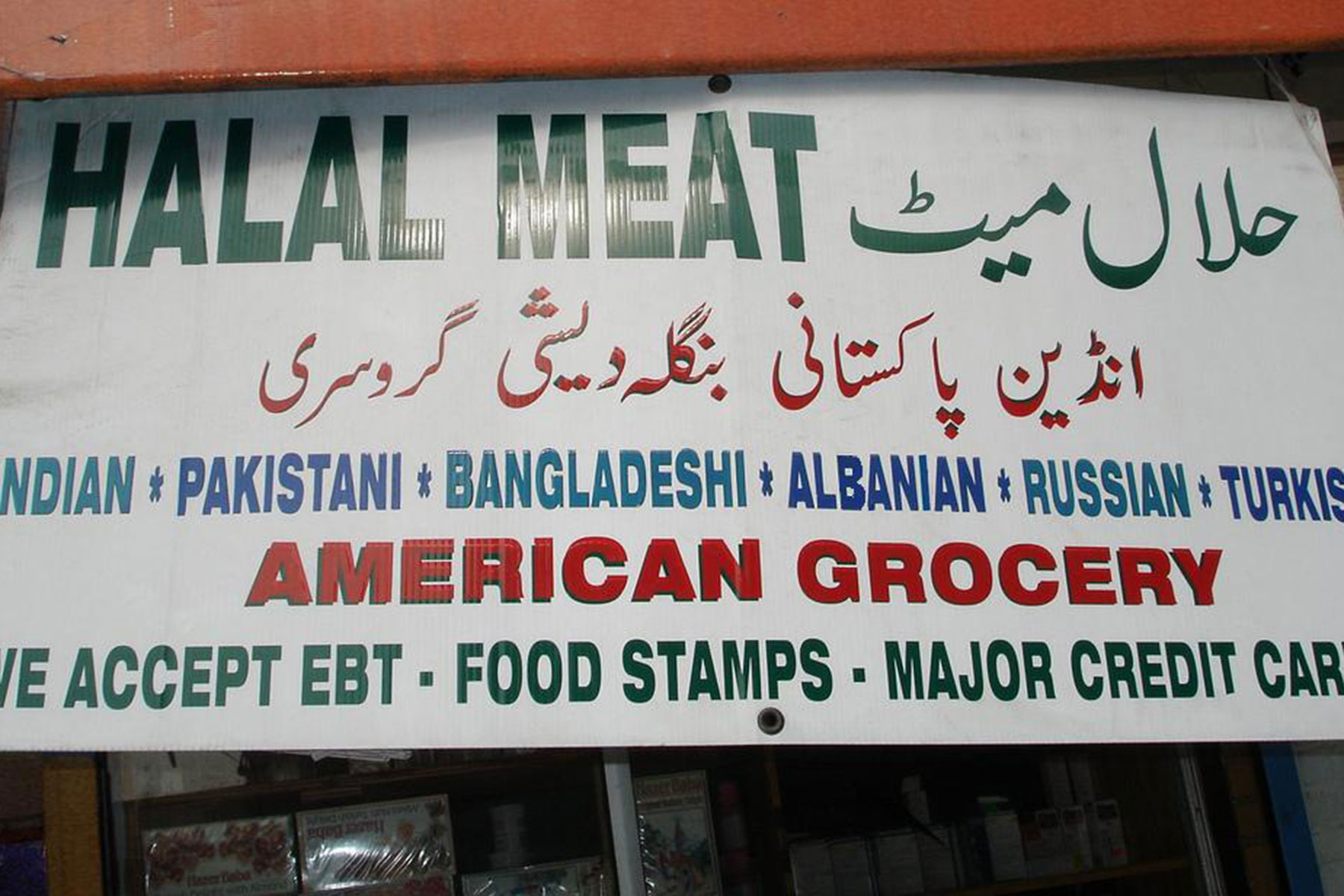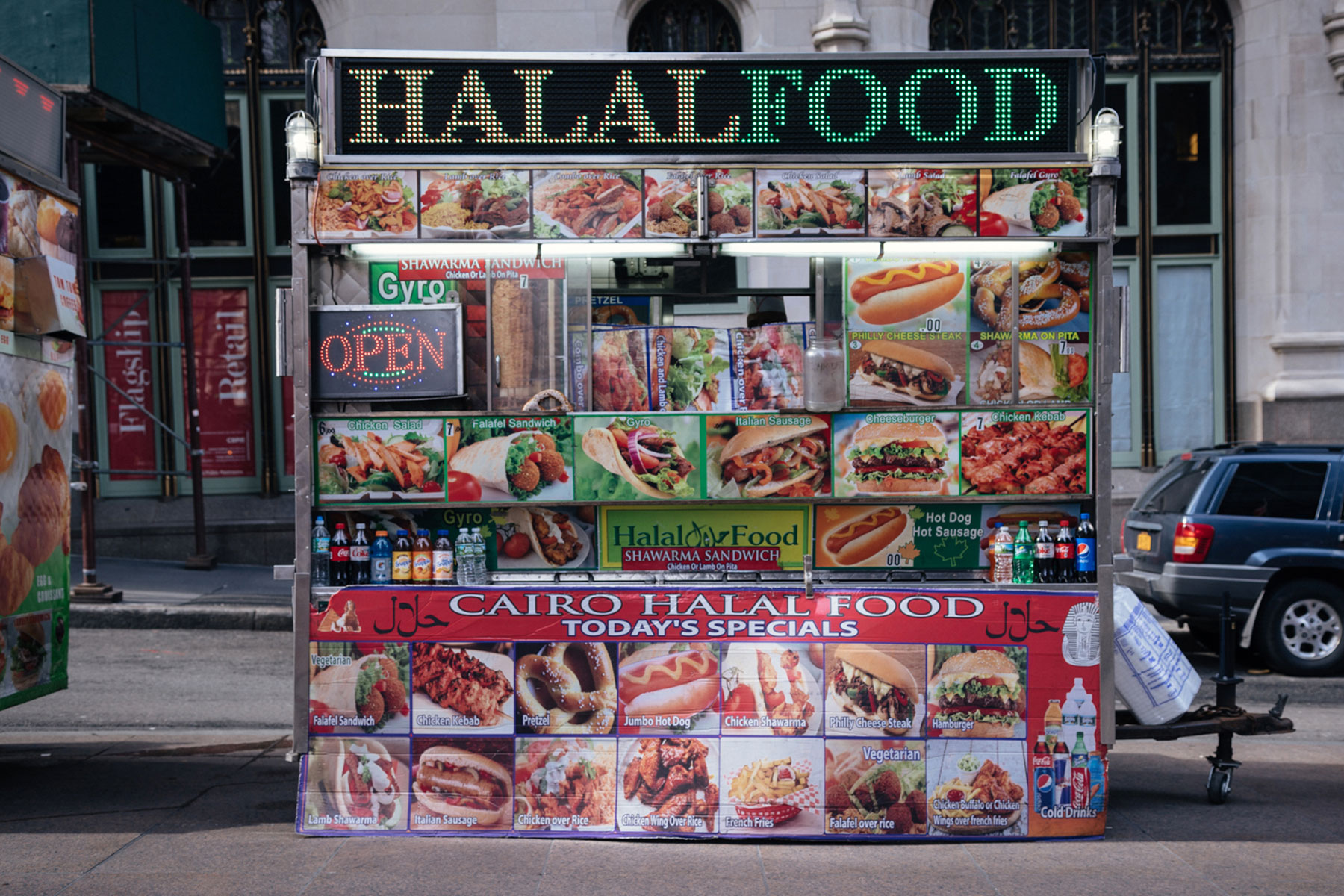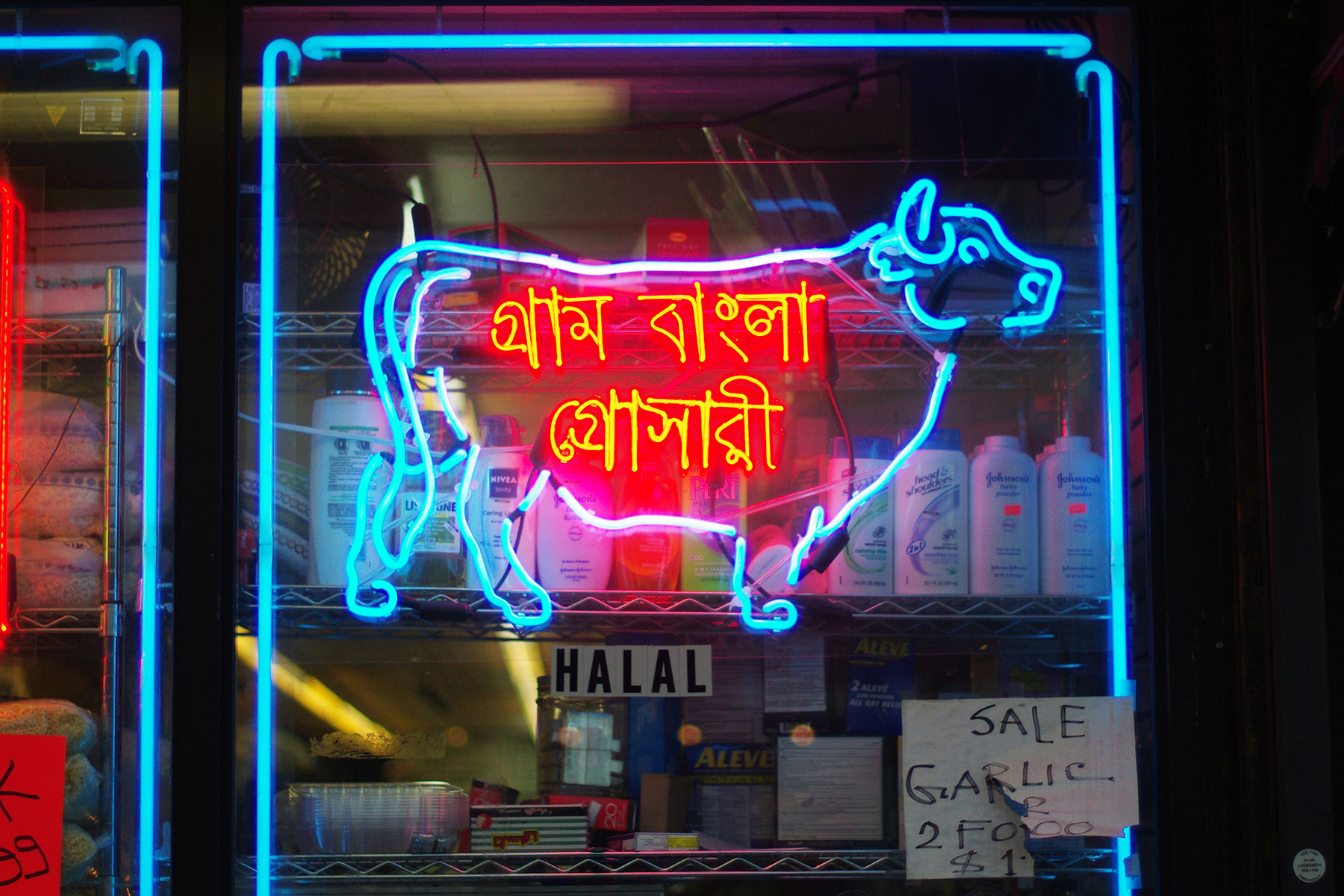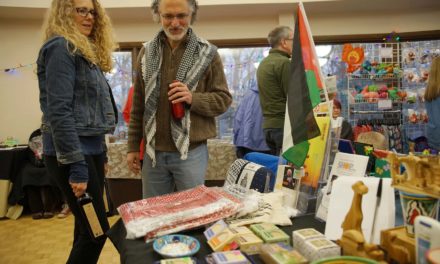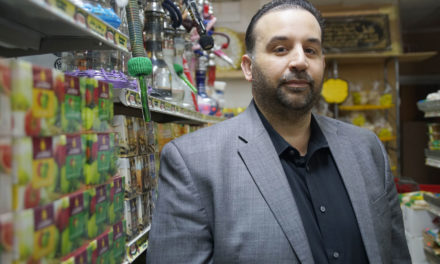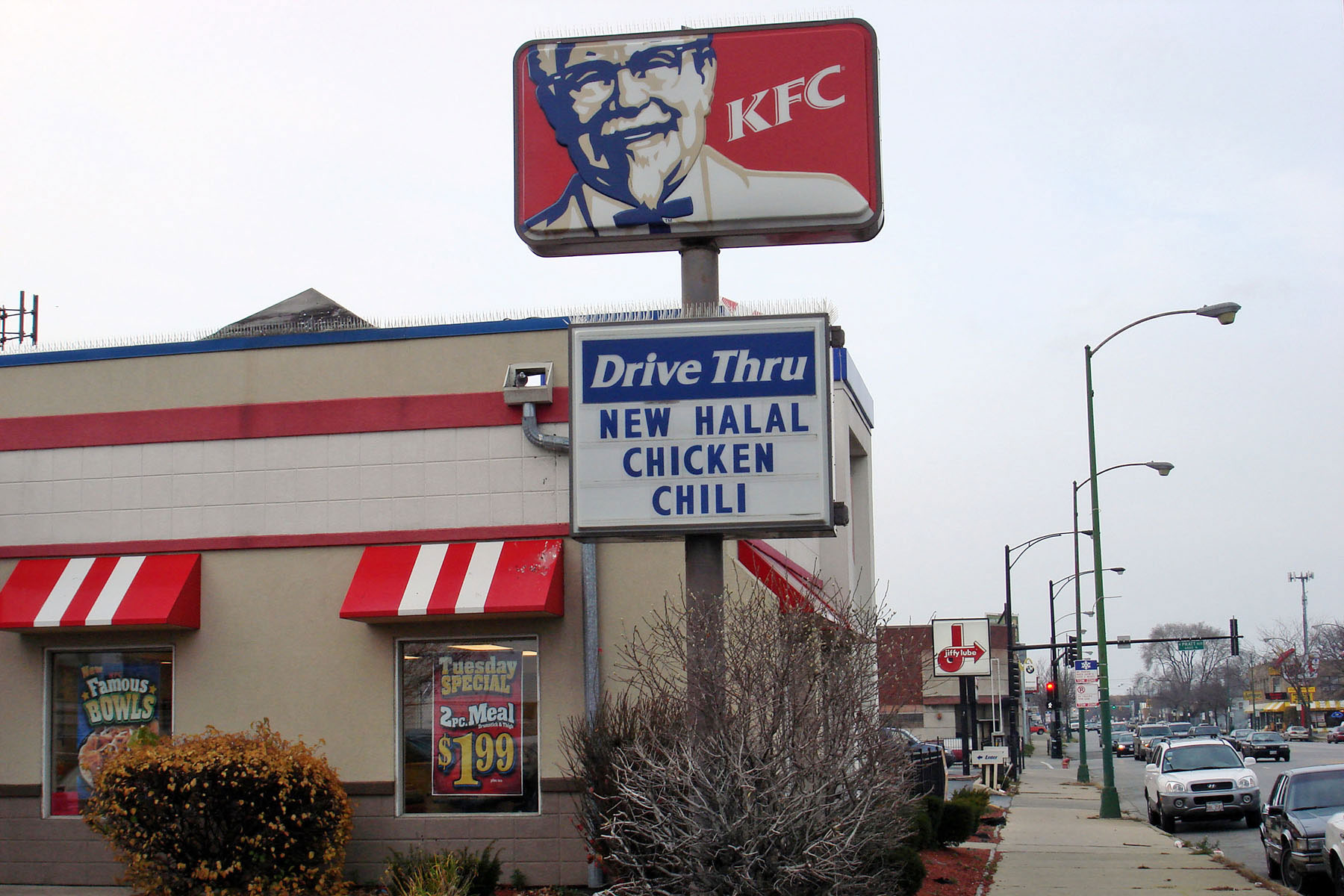
Various reports estimate that the world-wide demand for halal-certified food and beverages will be worth between $415 billion and $3.7 trillion by 2020.
Research by the Organization of Islamic Cooperation (OIC), which is comprised of 57 Muslim-majority countries that represent 1.38 billion Muslims, shows that eight of the ten largest suppliers of global halal meat are non-Muslim majority countries, with Brazil, Australia, India, and Argentina at the top of the list.
Halal is the Arabic word for “lawful” or “permitted,” and is a broad term covering what is allowed in the context of Islamic dietary laws. Most often it is used in conjunction with the issue of how meat is processed.
“Kosher is an animal blessed from a Jewish perspective before it is slaughtered. So it is meat prepared for Jewish people as part of their dietary law, but over the years, it has become popular outside the Jewish community,” said Ali El Hashash, owner of the Holy Land Grocery & Bakery. “Halal is the same thing, but the prayer has to be done by a Muslim. And the slaughter is done according to the Sharia law. So we say halal or kosher is basically the same way to slaughter an animal, just who is slaughtering it makes the difference.”
Whether kosher or halal, the slaughter process has to be done according to the religion. Zabiha is the Arabic term for the Islamic method of slaughter, derived from the Quran and Sunnah. The procedure is believed to cause the least amount of pain to animals and it is important to perform the act with respect and compassion.
The result is that the the meat is also a lot healthier than the regular slaughterhouse production. Those companies follow no religious observation. They have massive assembly lines designed to fulfill the consumption habits of consumers, who are more concerned with cheap prices than the quality of the meat or if it is produced in a humane way. Muslims cannot eat meat from animals that have been mistreated, which some activists contend is the basis of America’s meat and poultry industry.
With the increased demand for halal in recent years, many chain grocery stores have sections dedicated to the specialty meat, particularly cities with significant Muslim communities such as Chicago and New York. Along with that popularity has come overblown controversies about halal. By attacking dietary practice like the consumption of halal meat, it has been used by Islamophobes as another opportunity to attack Islam and Muslims. This is not very different from the attack on kosher decades ago, as a means to stigmatize Jews.
The ripple of controversies began in 2010 as a storm in a soup can. The Campbell’s Soup Company test-marketed a line of halal-certified products for the American market. It was seized by some as evidence of the influence of Muslims and caused a flurry of hysteria against Muslims in America.
One of the leading anti-Muslim activists in America, Pamela Geller, helped incite the frenzy by claiming the soup was part of “Creeping Sharia through a conspiratorial plot involving the grocery store soup aisle.” Her argument was that by purchasing soup, the American people were funding organizations that wanted to harm the country. A short-lived soup boycott had no affect on product sales.
The slaughter process of halal meat has also been used as a proxy fight against Islam, without a fair or scientific comparison to the practices followed by the big meat companies. Protestors have only cared about animal rights as pertaining to the specialty meats of Muslims, not American consumers who drive the demand for how meat is manufactured at an industrial level.
In most states, if something is labeled halal and it is not halal there can steep legal repercussions. Many unscrupulous businesses in recent years have duped distributors and consumers with halal-certified meat that was not even safe for non-halal consumption. For example, the big meat company Midamar Corporation in Cedar Rapids, Iowa was investigated by the federal government. They found some of the products passed off as halal were not, and they were fined with heavy penalties.
Two McDonalds in Michigan served halal, because they were supported by a sizable population of Arab-American Muslims. But after a contentious lawsuit in 2013 that accused the restaurant chain of selling non-halal items advertised as halal, McDonald’s has yanked its Halal Chicken McNuggets and Halal McChicken sandwiches off the menu.
”There are lots of other things Muslims can eat, especially anything vegetarian. However, we cannot eat pork at all. Regardless where it is coming from, we cannot consume anything from a pig,” added El Hashash.” There are many Muslims that are very careful when going out to eat, to be on the safe side, they will choose a vegetarian menu.
